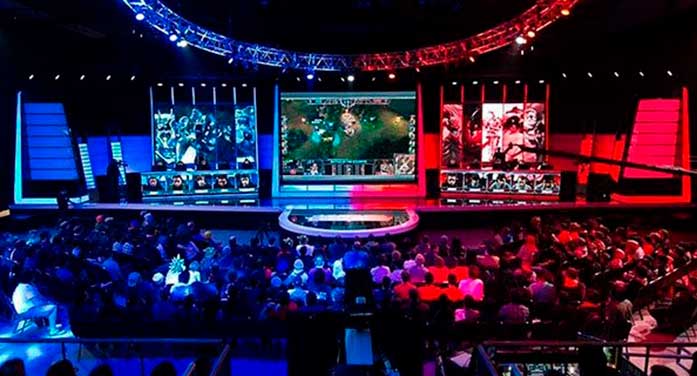
FanDuel was founded in 2009, it was the first DFS operator in the U.S, with DraftKings following suit in 2021. The two companies found a way to exploit the circumstances in the U.S at the time – the absence and illegality of betting outside Las Vegas, the incredible popularity of fantasy sports and their exemption from any legal restrictions applying to betting as many consider it a game of skill. Then came a need to modernise fantasy sports and turn them into a more marketable, easier, and attractive pay-to-play product. There were new cash incentives for players, whilst the time-consuming season-long format was removed. They introduced paid Fantasy Contests for every game, every day of the week.
Sweepstakes
Sweepstake Casinos have long been an enticing way for gamblers in the U.S to place a bet online. The idea of sweepstake casinos is to buy gold coins which are bundled with sweeps coins. Gambling with the sweep’s coins, you have the opportunity to win more and then redeem them for real money prizes. If you want to find out more about sweepstake casinos, you can have a look at our complete guide where we list the best social casinos with real money.
Venturing into Europe
Companies and entrepreneurs were bullish and inspired by the DFS boom, they were certain that the format could be a success in the European market, where fantasy football was beloved, and betting was not only legal but a part of everyday entertainment for sports fans. Many DFS-like companies emerged between the years 2013-2017, very few are still around today. DFS was still a new product and it became clear that it was an unknown to Europeans, who were already used to traditional betting and huge, reliable operators such as Bet365, William Hill and 888, companies that offer a huge amount of betting markets, different odds and options such as cash-out.
The Supreme Court Decision of 2018
It became obvious that the unique case of the U.S betting industry – or lack thereof until the Supreme Court decision in 2018 – was the perfect foundation and catalyst for the establishment of DFS. This helped pave the way for the introduction of sports betting in the country as well. There has been a slow and gradual state-by-state legalization and regulation of betting across America, leaving a vacuum of opportunity for residents and profiteers of the iGaming industry. Sportsbooks and sports betting is now legal in over 20 states, whilst online casinos are now legal in 6. Renowned sports betting software providers are either battling their way into casinos’ and online operators’ portfolios or getting bought up by larger industry corporations coming in for their slice of the pie.
The Great Expansion
DFS giants have been thriving, while expanding their offerings to sportsbook markets as well, while their success has made space for new differentiated fantasy operations, ones that cleverly offer hybrid DFS formats across all legal and ‘grey’ areas between betting and fantasy sports legislation per state. Industry experts stress that it’s still early days in the U.S sports betting space, it’s pretty clear that FanDuel and DraftKings are miles ahead of the competition. Recent estimates put both companies’ combined market share at around 60%, with DraftKings having a slight edge. The legalization of sports betting in the U.S has been compared to the California Gold Rush. VIXIO Gambling Compliance, a gaming industry consultancy, estimated that annual U.S sports betting revenue would reach up to $12.1 billion to $17.1 billion by 2025, way up from an expected figure of $6.7 billion to $8 billion in 2022. DraftKings have made claims the industry could generate as much as between $22 billion and $24 billion a year when it finally reaches full maturity. The competition is heating up, it is fierce in a space where companies are spending more money on marketing than they are bringing in from current operations. Acquisition costs are high when looking at the lifetime value of consumers. DFS is here to stay.
This content is a joint venture between our publication and our partner. We do not endorse any product or service in the article.

